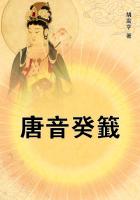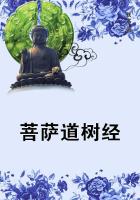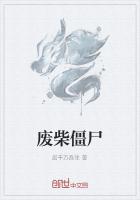ave you heard the Taoist tale of the Taming of the Harp?
Once in the hoary ages in the Ravine of Lungmen stood a Kiri tree, a veritable king of the forest.It reared its head to talk to the stars; its roots struck deep into the earth, mingling their bronzed coils with those of the silver dragon that slept beneath.And it came to pass that a mighty wizard made of this tree a wondrous harp, whose stubborn spirit should be tamed but by the greatest of musicians.For long the instrument was treasured by the Emperor of China, but all in vain were the efforts of those who in turn tried to draw melody from its strings.In response to their utmost strivings there came from the harp but harsh notes of disdain, ill-according with the songs they fain would sing.The harp refused to recognise a master.
At last came Peiwoh, the prince of harpists.With tender hand he caressed the harp as one might seek to soothe an unruly horse, and softly touched the chords.He sang of nature and the seasons, of high mountains and flowing waters, and all the memories of the tree awoke! Once more the sweet breath of spring played amidst its branches.The young cataracts, as they danced down the ravine, laughed to the budding flowers.Anon were heard the dreamy voices of summer with its myriad insects, the gentle pattering of rain, the wail of the cuckoo.Hark! a tiger roars,--the valley answers again.It is autumn; in the desert night, sharp like a sword gleams the moon upon the frosted grass.Now winter reigns, and through the snow-filled air swirl flocks of swans and rattling hailstones beat upon the boughs with fierce delight.
Then Peiwoh changed the key and sang of love.The forest swayed like an ardent swain deep lost in thought.On high, like a haughty maiden, swept a cloud bright and fair; but passing, trailed long shadows on the ground, black like despair.Again the mode was changed; Peiwoh sang of war, of clashing steel and trampling steeds.And in the harp arose the tempest of Lungmen, the dragon rode the lightning, the thundering avalanche crashed through the hills.In ecstasy the Celestial monarch asked Peiwoh wherein lay the secret of his victory."Sire," he replied, "others have failed because they sang but of themselves.I left the harp to choose its theme, and knew not truly whether the harp had been Peiwoh or Peiwoh were the harp."This story well illustrates the mystery of art appreciation.
The masterpiece is a symphony played upon our finest feelings.True art is Peiwoh, and we the harp of Lungmen.
At the magic touch of the beautiful the secret chords of our being are awakened, we vibrate and thrill in response to its call.Mind speaks to mind.We listen to the unspoken, we gaze upon the unseen.The master calls forth notes we know not of.Memories long forgotten all come back to us with a new significance.Hopes stifled by fear, yearnings that we dare not recognise, stand forth in new glory.Our mind is the canvas on which the artists lay their colour; their pigments are our emotions; their chiaroscuro the light of joy, the shadow of sadness.The masterpiece is of ourselves, as we are of the masterpiece.
The sympathetic communion of minds necessary for art appreciation must be based on mutual concession.The spectator must cultivate the proper attitude for receiving the message, as the artist must know how to impart it.The tea-master, Kobori-Enshiu, himself a daimyo, has left to us these memorable words: "Approach a great painting as thou wouldst approach a great prince." In order to understand a masterpiece, you must lay yourself low before it and await with bated breath its least utterance.An eminent Sung critic once made a charming confession.Said he: "In my young days I praised the master whose pictures I liked, but as my judgement matured I praised myself for liking what the masters had chosen to have me like." It is to be deplored that so few of us really take pains to study the moods of the masters.In our stubborn ignorance we refuse to render them this simple courtesy, and thus often miss the rich repast of beauty spread before our very eyes.A master has always something to offer, while we go hungry solely because of our own lack of appreciation.
To the sympathetic a masterpiece becomes a living reality towards which we feel drawn in bonds of comradeship.The masters are immortal, for their loves and fears live in us over and over again.It is rather the soul than the hand, the man than the technique, which appeals to us,--the more human the call the deeper is our response.It is because of this secret understanding between the master and ourselves that in poetry or romance we suffer and rejoice with the hero and heroine.
Chikamatsu, our Japanese Shakespeare, has laid down as one of the first principles of dramatic composition the importance of taking the audience into the confidence of the author.
Several of his pupils submitted plays for his approval, but only one of the pieces appealed to him.It was a play somewhat resembling the Comedy of Errors, in which twin brethren suffer through mistaken identity."This," said Chikamatsu, "has the proper spirit of the drama, for it takes the audience into consideration.The public is permitted to know more than the actors.It knows where the mistake lies, and pities the poor figures on the board who innocently rush to their fate."The great masters both of the East and the West never forgot the value of suggestion as a means for taking the spectator into their confidence.Who can contemplate a masterpiece without being awed by the immense vista of thought presented to our consideration? How familiar and sympathetic are they all;how cold in contrast the modern commonplaces! In the former we feel the warm outpouring of a man's heart; in the latter only a formal salute.Engrossed in his technique, the modern rarely rises above himself.Like the musicians who vainly invoked the Lungmen harp, he sings only of himself.















